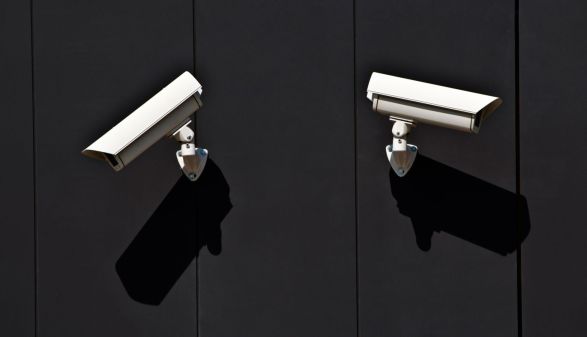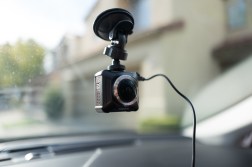Police still slow to adopt body camera policies favored by civil rights advocates — report

Though police departments in America’s largest localities are making some progress in adopting practices around the use of body-worn cameras championed by civil rights advocates, many have still failed to do so, according to a new report.
The Leadership Conference on Civil and Human Rights — a coalition of dozens of civil rights groups — released a revised version of its police body camera “scorecard” Tuesday, evaluating the way that departments in 50 cities and counties use the technology.
The group expanded its focus to an additional 25 localities since it initially released a scorecard last November, yet its analysts (working in conjunction with the technology policy consulting firm Upturn) found that none of the departments they examined were able to meet all eight of the criteria they used to evaluate the municipalities. Additionally, only 13 departments managed to earn passing marks in more than two of the categories the group examined.
“We see this as a nationwide failure to honor these basic civil rights and privacy protections,” Wade Henderson, the conference’s president and CEO, said on a call with reporters.
To compile the scorecard, the group assigned ratings based on how each department makes its policy publicly and readily available, limits officer discretion on when to record, addresses personal privacy concerns, prohibits officer pre-report viewing, limits the retention of footage, protects footage against tampering and misuse, makes footage available to individuals filing complaints, and limits the use of biometric technologies.
In all, Henderson said one of the most concerning trends the analysts noted was how slowly departments are working to release policies governing body cameras to the public. While the coalition saw a small uptick in the number of departments posting their policies online — with 26 making up-to-date policies easily accessible on their websites — the group is worried that many are failing even this basic test of transparency around the technology.
“We’re seeing some slow progress across the country, but obviously things still look relatively bleak in about half the departments that we studied,” said Harlan Yu, a principal at Upturn. “I think this clearly indicates that departments are not engaging their communities as they purchase [cameras] and develop policies for how cameras will be used in their communities.”
Yu added that three departments the researchers studied — Aurora, Colorado; Pittsburgh; and Detroit — are currently using the technology, but haven’t made their body camera policies public, online or otherwise.
He suggested that because similar documents (like training manuals) are “typically internal” for each department, police leaders might not even appreciate the need to release these policies publicly.
“This is still a relatively new phenomenon,” Yu said. “They might not see them as public documents, even though they’re hugely important for building community engagement.”
The civil rights advocates are also concerned that none of the departments they examined uniformly banned officers from viewing camera footage before writing a report about an incident captured on video. Yu points out that six departments have partial prohibitions on the practice (with some barring officers from viewing videos about controversial incidents like police shootings before completing an initial statement), but he still sees this as a disturbing finding overall.
“It creates an uneven playing field, and in the worst case scenario, an officer can conform their story to what he or she saw in the video,” Yu said.
However, Yu believes departments have made some marginal progress in a few areas the researchers evaluated.
Namely, he’s encouraged that 22 departments now stipulate exactly when officers have turn on their cameras and outline how they have to justify failing to do so in those scenarios. In light of the controversy in Chicago earlier this week (after an officer fatally shot an unarmed black man without his body camera activated), Yu said this policy provision is a “particularly salient” one for cities to consider.
“This is the criterion that departments generally did best on,” Yu said. “But the policy only goes as far as the department actually enforcing it. Disciplinary procedures are critical for making sure that they’re used as actually intended.”
[Read more: Judge strikes down Calif. city’s $3,000 bill for release of police body camera videos]
Yu is also glad to see more departments setting limits around how they plan to use the cameras in conjunction with biometric technologies like facial recognition software. When the analysts last issued the scorecard, Baltimore was the only city to even mention the issue in its policy. Now, departments in five other localities have adopted biometric restrictions, a “minor improvement” in Yu’s eyes.
Similarly, he sees incremental progress in how departments are making footage available to people filing police misconduct complaints. Though just two more localities the analysts studied adopted policies letting potential complainants view footage since the release of the last scorecard — bringing the total to four departments overall — Yu is still hopeful that police are moving in the right direction on the issue.
“Accountability is only possible if people who need to see the footage have access to it, especially special access outside of normal public records laws,” Yu said.
Indeed, as more state legislatures act to alter public records laws to shield body camera footage from disclosure, Yu said it’s more pressing than ever for departments to carve out some avenue for people interacting with police to get access to the footage.
“Many of these public records laws were crafted without cameras in mind, so I think it is appropriate for legislatures to revisit the question about the balance between privacy and transparency in these videos,” Yu said. “But it’s very concerning that the shift seems to be toward locking them down versus making more publicly available, so we’ll be keeping a close eye on this.”






